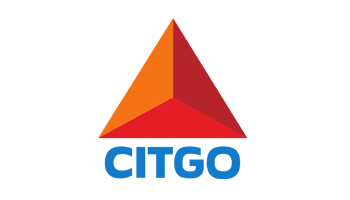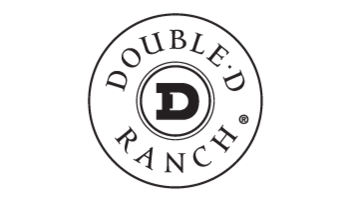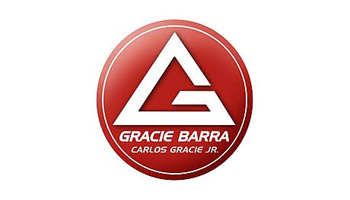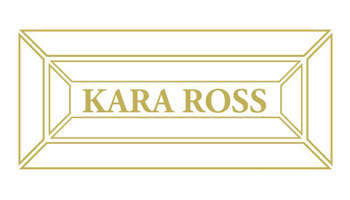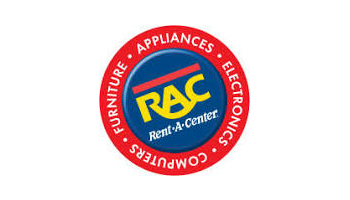
Welcome to the new year and the new decade! Each year holds unlimited opportunities for business owners and this one is no different. Well, it sort of is! Instead of 365 days to make the most of, you’re getting 366 since it’s a leap year. Cheers! And regardless of whether you’re just now dipping your toes in the water or you’re a full time vet, there’s bound to be some great opportunities coming your way.
As per usual, we’re going to focus on tips for newbie entrepreneurs though I’m sure even the most seasoned of veterans can find some gems in here. So let’s kick off the New Year right and don’t forget that we’re also here to help you along the way! No goal is too big or too small for Be a Hero Agency. 🙂
1. Pick the right niche for you

We’ve covered this one a lot and for good reason. It’s on the of the most important aspects of starting your own business. You can read a more in depth look at the topic here but we’ll give you a general overview.
Picking a niche is where a lot of people tend to make mistakes. It can be easy to pick something that’s too broad in terms of a general business. It might seem like a good idea at first, but chances are you’re going to struggle to figure out exactly who your audience is. For example, let’s say that you’re interested in producing an all-natural, organic shampoo and conditioner that’s super good for hair. It’s a good idea for sure and you’re bound to get business, but it’s very broad. Anyone with hair could potentially benefit from your product and it can be difficult to create ads and marketing strats around this. Now if you design your product to benefit people with thin, dry hair that needs extra TLC, then you’ll be able to easily identify your audience and market effectively to them.
Now on the other hand, if you’re too specific with your shampoo and conditioner line, then you’ll probably discover that your niche is far too narrow. For example, let’s say that you design your products to benefit people whose hair is thinning, then you’re eliminating a lot of clients. There are a ton of buyers out there who will benefit from a shampoo and conditioner that treats thinning hair, but that’s the only group that you can sell your products to.
You also want to avoid centering your niche around seasons. What do I mean by this? Well, let’s say that Christmas is your absolute favorite holiday. You also know how popular decorations and Christmas items can be during this time of year. Wrapping paper, bows, gift bags, decor, etc. flies off the shelves and people are often willing to pay a premium for these products. It seems like a solid niche to get into right? Wrong. You’ll do a killing close to Christmas, but you’re going to struggle to find clients come spring.
Another tip to consider is that you want to be able to remarket your products to customers. In the shampoo and conditioner line, people will continue to come back. Even after they’ve worked out their hair issues, they’ll probably still opt for your nutrient rich products. Now if your niche is luxe maternity clothing, then your remarket value plummets. Women are only pregnant for nine months. Once she gives birth, she’s not going to be in need of your products anymore. While she might get pregnant again, you’re once again in that small cycle of need then not need after 9 months.
You can also take advantage of Google Trends, which will show you how stable and popular particular niches are. Make sure that your niche is something that’s popular in terms of search results like fashion, fitness, beauty, home decor, etc.
2. Rome wasn’t built in a day & your business shouldn’t be either

Did you know that the Roman Colosseum is 949 years old? And despite its age it’s still largely in tact. Candidly speaking, the Colosseum has faired better than some of our modern buildings. That’s because the material used is better and stronger than any concrete that’s used today. The Romans took their time with the construction, making sure that they used only the finest materials, used rare luxury marble imported from other countries, and designed the building to withstand the tests of time. Are you catching our drift?
It can be tempting to launch your business ASAP. After all, you’ve got a great idea, awesome products, and you’re excited to share them with the world. Unfortunately, this type of build is very short-term. Sure, you’ll rake in some profit and you’ll probably do so fairly quick. However, you should be focused on something that’s going to last for years to come. This means spending time:
- Researching your niche
- Researching your competition
- Learning the ins and outs of your market
- Building an attractive, content rich website
- Focusing down your SEO
- Figuring your audience
- Planning for the future
Concentrate on building not only a quality business, but a business with a legacy. How? By doing what you do so often and so well that you do it far better than any of your competitors. So take a page out of the Roman’s books when crafting your own business.
3. Solve a problem

The best (and most profitable) businesses come from offering a solution to a major problem. And in fact if you looked at the bulk of businesses that failed and asked the owners what problem their company solved, the wouldn’t be able to tell you… Or the problem they addressed wasn’t significant enough.
This isn’t to say that you need to create a business that cures cancer or comes up with a cure for a disease, but you do need something that helps people overcome a problem. Reflecting back on the hair product line, your shampoos and conditioners address a pretty significant problem: hair that needs some extra TLC. Dry, damaged hair that’s a product of genes, dye jobs, or too much heat styling is a pretty big issue.
Also by knowing exactly what problem you’re setting out to solve, you can work your marketing strats in a way to educate customers on how your products can help. And more than that, how your products can help more than your competitors’.
4. Focus on profit, not revenue
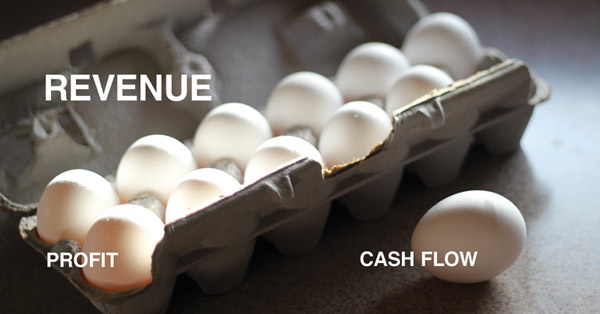
It’s easy to get caught up with revenue and become obsessed.
You know those people who are always shouting, “in 9 months, I made 6 figures!” Yeah, we all know them or we’ve seen their ads. And in the back of our minds, we’re asking “did you really make that much though?” And chances are, they didn’t.
So let’s say that those six figures total out to $700,000. In 9 months, the business owner has had that number come across their board. It’s impressive to say the least, but you might be wondering how much they actually got to keep… And if that number is $10,000 you might also be asking whether or not it was worth all of the hard work to make that. You might also question whether or not it’s sustainable. The answer? Probably not.
So instead of focusing on revenue, focus instead on profit. The more profit you have, the more money you can reinvest in aspects of your business such as employees, marketing, success, etc. And as an entrepreneur, you’re going to be paid last. Your startup expenses should get the first check. You’ll also want to make sure that you have enough money to treat yourself too, though.
Need help? Oberlo’s has a free tool called Profit Margin Calculator that can help you earn a profit.
5. Become obsessed with your customer’s needs

Unmet needs is one of the biggest sources of conflict in business. If a customer isn’t getting the product or service that they expected (or were promised), then their needs aren’t met, and they’ll feel angry and frustrated. Because of this, one of the most important business tips we can offer in regards to managing customer relationships is to always empathize with the customer.
This isn’t to say that you need to pander to rude, impossible to please customers, but you should focus on helping your customers solve their problems. And if your products aren’t meeting their expectations, see what you can do to make that happen.
When you start looking at your customer’s frustration as pain from not having their problem solved/needs met, it can be easier to relate. And it becomes easier to not take the insults/rudeness personally. Now you’re free to focus on what they’re really trying to say. And by doing so, you can come to a resolution that works for both of you. This also means that instead of giving a refund and taking the easy way out, you’re establishing trust and building a long-term relationship. Many business owners are quick to just cut their losses and in some cases, this might be best but you should always see if there’s a resolution before closing the door. Remember that word of mouth is one of your best friends and if you can get this difficult client on your side, they might spread the good work.
Check out Nonviolent Communication: A Language of Life by Marshall B. Rosenberg, PhD for more tips on how to do this.
6. Concern yourself with employee morale

Your employees are the backbone of your business! And a happy employee will not only work harder for you, but they’ll also work harder for your customers. Think about the last time you dropped by a restaurant and your waiter was rude. They forgot your drink, were short with you, and just didn’t seem to care at all. It probably made your experience a lot less pleasurable and perhaps if it was bad enough, you didn’t want to come back. Now think about a waiter that you had that was very friendly, outgoing and helpful. They were always on top of things and offered great conversation. You enjoyed your meal and you’re far more likely to come back. My point? If your employees are treated well, they’ll reflect that attitude towards your customers and your business will benefit from it.
Most entrepreneurs get caught in trying to act like a boss. And trust me, no employee wants to deal with that. They want to feel appreciated, valued, and like they’re part of your business rather than just an asset that can easily be replaced. If you’re constantly criticizing your employees for not doing things “your way”, you’ll find that their performance will drop.
7. Start off with a narrow focus then expand from there

It can be tempting to dream big and try to expand right off the bat, but you need to start off slow. Take Amazon for example. They started off as an online bookstore. Once they started attracting a lot of attention and business, they began to slowly expand by offering toys and other products. As time went on, they continued to add new products until they became the global empire that they are now. This is how you build a business in general. And it should also be part of your small business manual.
Start with a narrow focus in the beginning then slowly broaden your horizons. By starting off narrow, you can establish a loyal and devoted customer base who knows what to expect from you. It also makes your marketing campaigns easier as we mentioned earlier.
Let’s go back to your shampoo and conditioner line. As your business grows, perhaps you start adding other products like leave in conditioners, straightening creams, hair masks/treatments, oils, etc. You can even dip your toes into the body product line by offering soothing shower gels and soaps that cater to sensitive, dry skin. It vibes well with your business niche already and customers won’t be completely caught off guard when you start offering new products. Dream big, but don’t expand early; you need to have a big audience and loyal customers first. There should also be a demand for the other products.
8. Keep an eye on your competition

As a small business owner, it can be easy to get wrapped up in your own little world and forget about your competitors. Your competition might not even be on your radar unless they’re trying to knock you down a peg so they can take the top. However, you shouldn’t wait until that you feel that first slip of the knife into the back to keep in eye on your competition.
This isn’t to say that you should obsess over what they’re doing and when they’re doing it, but you should be aware of the following:
- What products and services they’re offering
- Their marketing game
- Their price points (especially in comparison to your own)
- How they treat their clients
- New and upcoming services/products
Ideally you’ll want to figure these things out in the early stages so you know how to effectively compete against them. If you realize that they have a great product but their customer support absolutely sucks, capitalize on this. Focus more of your energy on customer relations to give you a leg up. The goal here is to figure out what their weaknesses are and then make it your strength while still offering a great collection of products/services.
9. Pick a business that matches your personality

Many people get caught up in a product/market fit scheme. They want to make sure that their product fits the market and that’s about as far as they go. This will definitely lead you down the path to success, but Naval Ravikant takes it a step further:
Founder – Product – Market
All 3 of these should fit together seamlessly. Basically, no one could run that business better than you because all of the above is a perfect match. Picking a niche that fits your skills, personality, experiences, and passions will get you far. Customers can tell when you’re passionate about what you do and if you love what you’re doing, then your profits will reflect that.
10. Don’t get wrapped up in perfection

The best piece of advice we can leave you with is to not get wrapped up in perfection. Your business will have kinks and that’s okay. Do your best and the rest will fall into place.
And if you’re struggling to take those first steps? Follow Nike’s slogan: just do it. And we don’t mean just launching your business. Take a step out of your own head and just do it. Stop questioning whether or not this is the right move to make and give it a go. You’ll make mistakes as you go, but these will only help to improve your business. There will definitely be challenges but you’ll learn how to jump high enough to clear them.
Entrepreneurship is about going all in.
It’s about taking risks and jumping into water that you don’t know the depth of. Your goal isn’t to win an award for perfection, but rather your goal is build a business that helps people find a solution to their problems.
